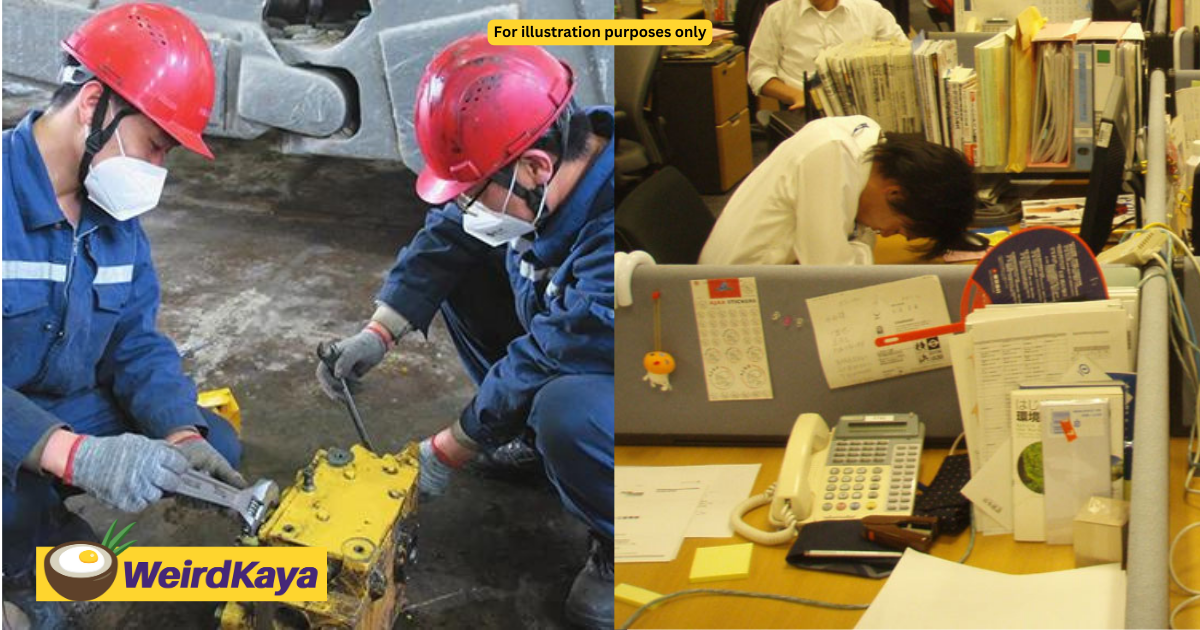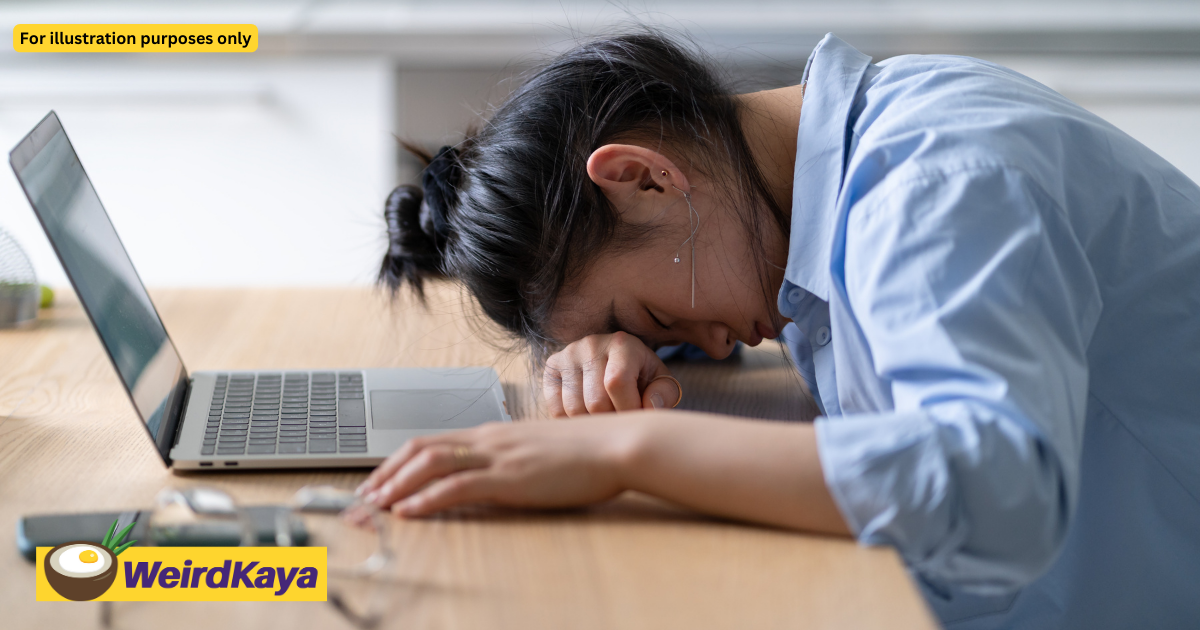In the ongoing comparison between white-collar and blue-collar jobs, the debate over recognising fatigue is constant. White-collar jobs, which involve mental skills, are set against blue-collar jobs, known for their physical demands.
The argument over which type of tiredness matters more is a common one, and it’s discussed on many platforms.
Mental fatigue is even more challenging
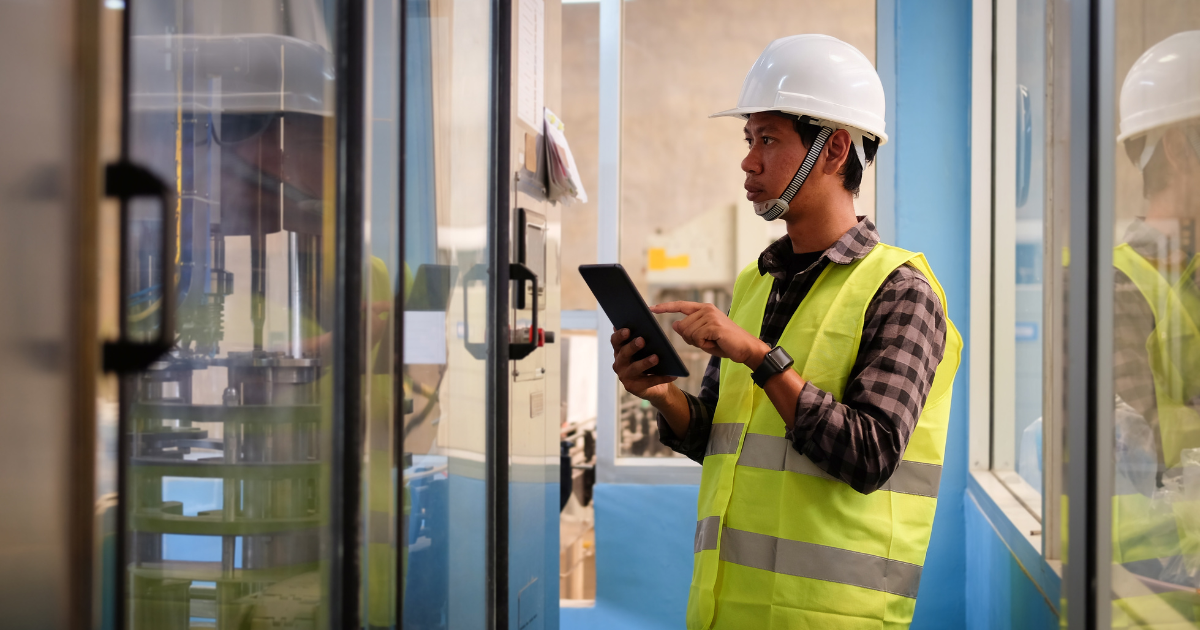
Recently, a popular post on Platform X showcased Naim, who has experience in both office and field work. His insights shed light on the intricacies of mental and physical fatigue.
Naim started his career as a technician in pest control, where hard physical work was the everyday norm.
But with a promotion, he found himself in management, where mental sharpness was key. Looking back on his journey, Naim realised something important: mental tiredness is tougher than physical exhaustion.
“I’ve experienced physical work and office work. It turns out, since I started working in the office, I can conclude that mental fatigue is even more challenging.
“During my time working outdoors, I worked up to 12 hours a day. My body was tired, but after resting, I felt refreshed again. I even had the energy to go to the gym.
“My appetite was quite good back then, but my body weight didn’t increase. But now, when I started working in the office, I noticed that when my mind is tired, my body automatically becomes lethargic.
“It is because our physical condition depends on our mental state when we want to do something,” explained Naim.
Mental fatigue doesn’t just go away with rest
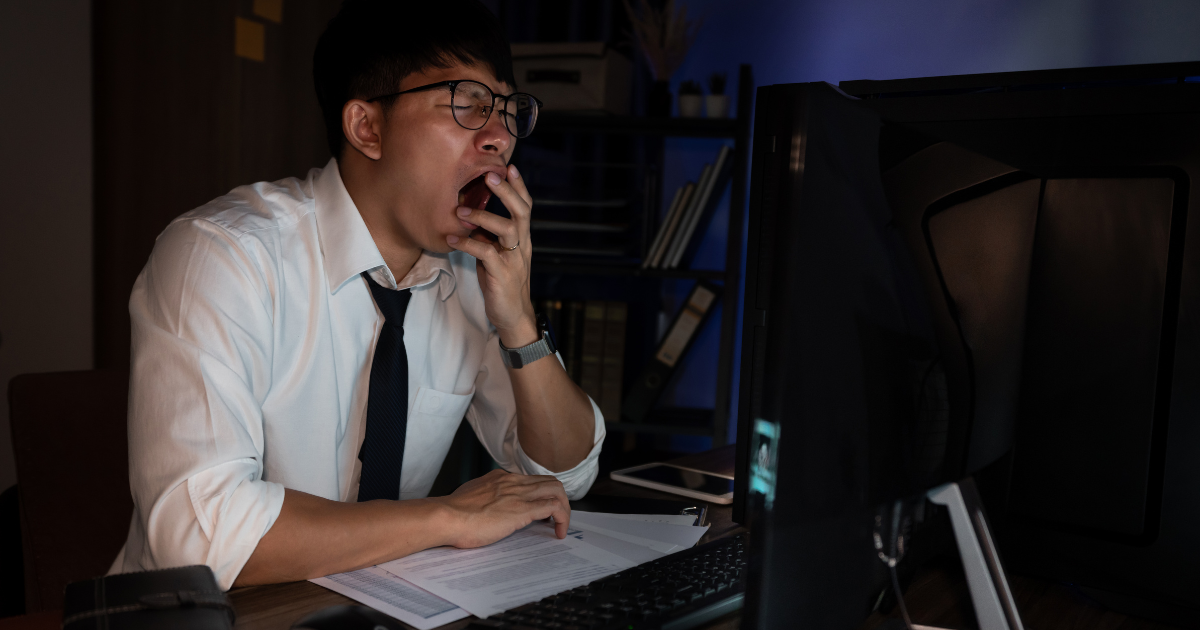
He also explains how mental tiredness is different.
“Unlike feeling physically tired, mental fatigue doesn’t just go away with rest. Our minds keep thinking about work, eventually, we lose focus on our lives.” he said sadly.
“When our minds are tired, our bodies feel it too, making us feel like we can’t do much. It’s even weirder when we gain weight from eating just a little. Our bodies always feel weak, and our spirits start to fade,” he explained.
‘But people think office workers are relaxed’
Naim’s story strikes a chord with many online, sparking discussions about workplace exhaustion.
Commenters share their own stories, highlighting the different ways fatigue can affect us. Whether it’s the rush of physical work or the strain of sitting at a desk for hours, each person’s experience adds to the conversation.
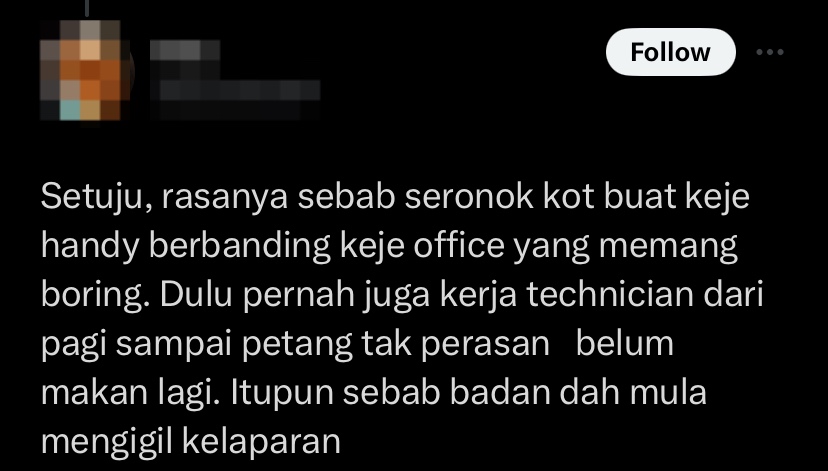
One commenter fondly remembers, “I enjoyed hands-on work more than the dull office routine. I remember my technician days, working so hard I didn’t even notice I was hungry until my body started shaking.”
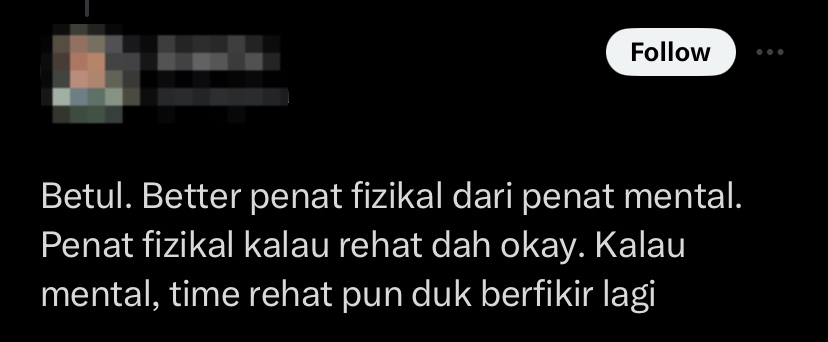
Another person agrees with Naim, saying, “Physical tiredness goes away when we rest, but mental tiredness sticks around, bothering us even when we’re supposed to be relaxing.”
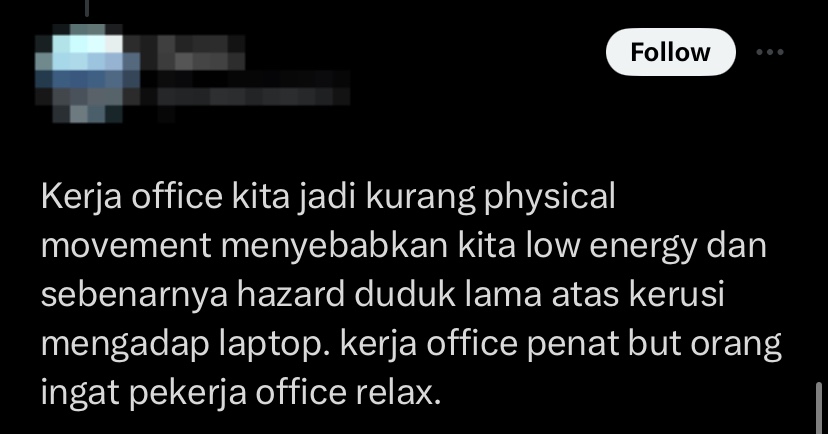
One chimed in: “Working in an office with less physical movement causes low energy, and sitting for long hours facing a laptop is actually hazardous. Office work is exhausting, but people think office workers are relaxed.”
Read the full post here:



